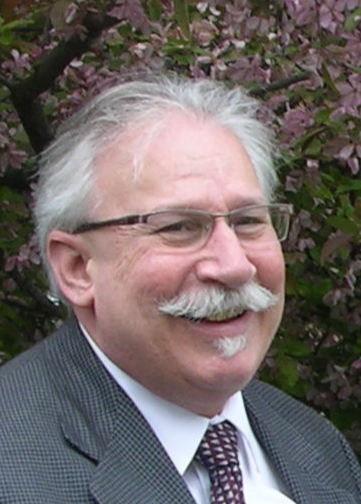Poll
Build Your Own Senate
It came to me some weeks ago, as I stewed in my frustration over the health insurance reform sausage making, that members of the United States Senate actually exercise a power that goes far beyond their service to constituents. As we see in this debate, a single senator like Max Baucus of Montana can exert an influence that affects the lives of all Americans, although a relatively small number of Americans are allowed to determine his future through their voting franchise.
I think that even Senator Baucus believes that the rest of us who have come to find a critical interest in how he executes his office have no say in determining his future electoral success. Therefore he sees himself beholden only to a few voters in Montana and, of course, the queue of check bearing corporate lobbyists streaming through his Senate office door.
It has become increasingly clear in this particular debate that many of these senators have abandoned all pretense of service to the nation, or even the voters of their own states and are making a gaudily public display of obeisance to their corporate pelf-meisters.
The Supreme Court of the United States has referred to pay-to-play schemes on the national scene as “political speech” that is protected under the First Amendment to the Constitution. Of course, the difference between corporate “free political speech” and the equivalent expression from individual citizens is that the corporations are capable of speaking so much louder than any citizen. As we discovered in the 2008 presidential contest, however, a large enough chorus of individual citizens can speak louder than a chorus of corporations.
This is also the means by which the preponderate class of non-residents can effectively weigh in on any particular senator’s performance. Of course, that requires thousands and millions of small contributions of “political speech” to be targeted at the same campaign. How is such an effort to be coordinated? How can interested progressives know who to support and, alternatively, whose primary opponent to support?
Well, the polling feature of OpEdNews.com springs to mind.
I will be presenting a series of polls at irregularly frequent intervals to sample progressive opinion on the performance of a number of U.S. Senators. I hope that the information yielded by these polls will give those interested progressives an idea of where their “political speech” can be directed to the best effect.
The strategy I see does not include support for Republicans’ primary opponents, since either choice in a Republican primary is likely to be objectionable to nearly all progressives. Therefore I will poll only for Democratic incumbents so that the most objectionable of those can find themselves in a primary with a well-funded primary candidate.
I will offer a brief set of facts on the senator to be considered, mainly relying on Wikipedia as a source. Of course, I encourage respondents to expand on this from their sources as well, and perhaps add pertinent facts in their comments.
At the end of this election cycle’s run of polls I will gather all of the data into an article to ease the comparison of incumbents, and we can use that to decide who most needs to be contested. In order to keep these results more or less on an even keel, I will use only the results that are current at two weeks after posting. Readers may refer back to these polls whenever they wish to see the full story.
There are thirty-four senate seats to be contested in the 2010 election cycle. One half of those, that is seventeen seats, are held by Democrats. We can begin today with a senator that should present an easy choice for progressives. That senator is Senator Russ Feingold of Wisconsin.
Russell Dana Feingold was born on March 2, 1953 in Janesville, Wisconsin. He attended the University of Wisconsin, Madison, earning a B.A. He attended Magdalen College at Oxford University as a Rhodes Scholar, receiving another B.A. He graduated Harvard Law School, earning his J.D. in 1979.
He has served in the United States Senate since 1993 where he is best known for his part in shaping the McCain-Feingold Act to reform campaign financing. In his 1992 campaign, he pledged that he would rely on Wisconsin citizens for most of his campaign contributions. In the 1998 race he capped his fund raising at $3.8 million, being one dollar for each citizen of Wisconsin. In 2004 he collected $11 million, 90% of which was donations from individuals. It seems to indicate that, less like his McCain Feingold co-sponsor, he actually walks the walk on campaign finance reform.
In 1987-88 he backed Senator Paul Simon (D-IL) for president, and in 2008, after a brief exploration of offering himself as a candidate for president, threw his support to then Senator Barack Obama (D-IL).
Senator Feingold currently sits on Senate Committees for the Budget, Judiciary, Foreign Relations and the Select Committee on Intelligence.
He supports:
Campaign Finance Reform
Fair Trade
Health Care Reform including Single Payer
Energy Conservation
Environmental Protection
Social Security
Civil Liberties including Same Sex Marriage
He opposes:
Capital Punishment
Government Spending Waste and Pork Barrel Spending
NAFTA and Other Free Trade Agreements
Corporate Welfare
USA Patriot Act
Politicians Receiving Gifts From Lobbyists
The War in Iraq
So, what do we think of this guy?
Invite Your Friend(s) to Vote:
Share This Poll
You can publish this poll on your blog or website. To embed a poll, just copy the code from this "Embed" box.
Once you've copied the code, just paste it into your website or blog to embed it.
Embed: See What It Will Look Like
<script type="text/javascript" src="https://www.opednews.com/populum/poll_api.php?pid=403&layout=default"></script>





